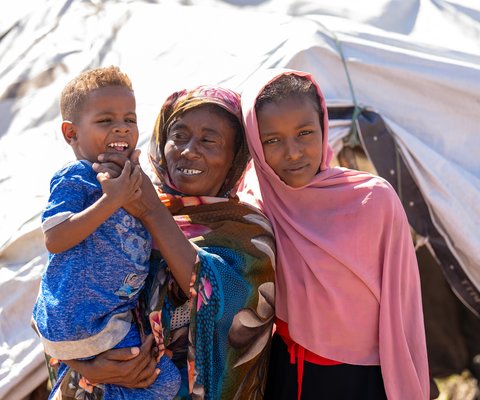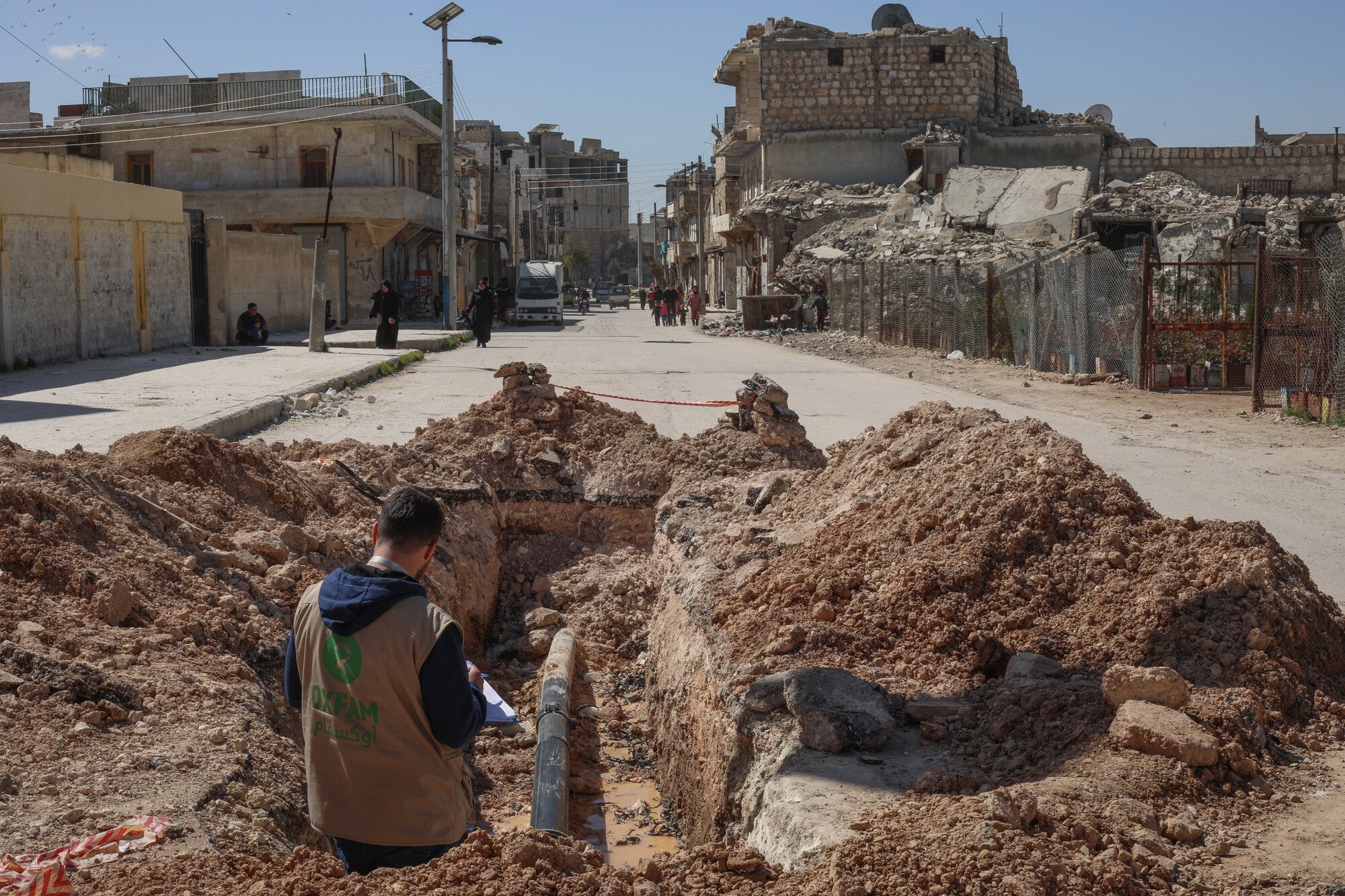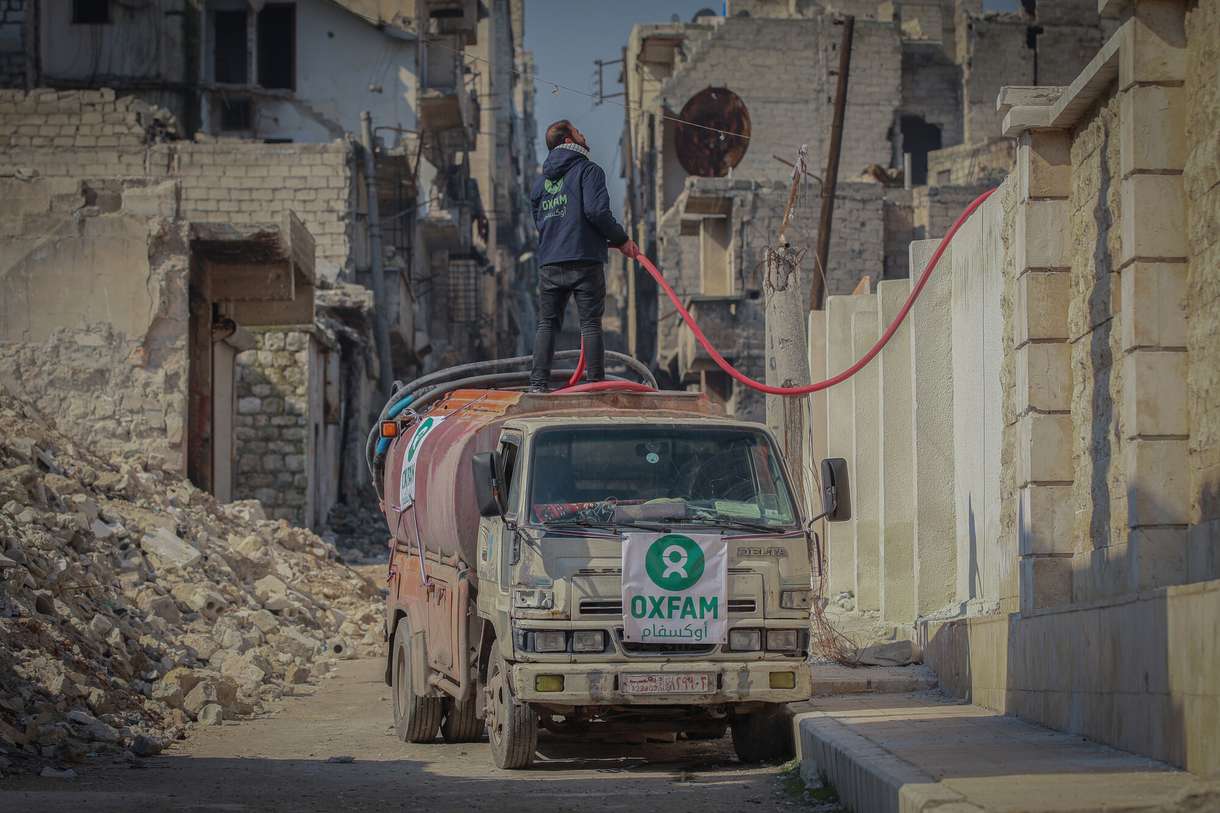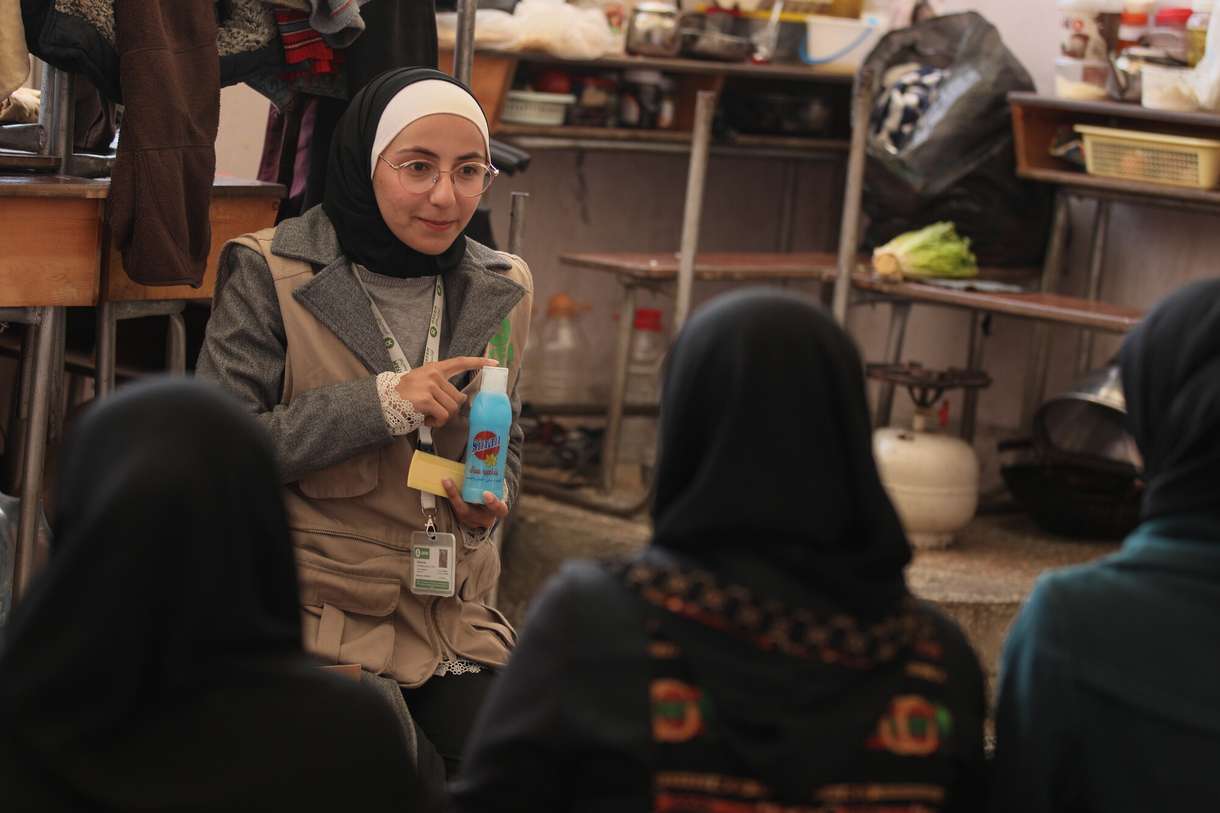Oxfam has been working in Syria since 2013. We work closely with local and national Syrian organizations, and also provide assistance directly to people affected by poverty and conflict. Together with our partners, we have reached 2.4 million people in the country in 2024-2025.
Clean water, sanitation, promoting good hygiene
Oxfam has rehabilitated wells and pumping stations, sewage and water supply systems that benefit more than 490,000 people across Syria. This work includes providing generators to help water pumping systems operate properly. Oxfam and our partners also distribute a variety of hygiene kits, which contain soap and menstrual products.
When conflict broke out in coastal areas of Syria in March 2025 displacing more than 50,000 people, Oxfam provided two generators and fuel for crucial pumping stations in Latakia and Jableh. Oxfam’s partner GOPA-DERD distributed 1,000 hygiene kits to families that lost their homes and or family members in Jableh. In July and August 2025, Oxfam delivered water by truck to areas near Latakia affected by wildfires to support the civil defense in their efforts to control the flames, and plans to repair two water pumping stations.
In July 2025, nearly 200,000 people have been displaced by conflict within Sweida Governorate. Oxfam along with partners GOPA-DERD and Syrian Society for Social Development have distributed 2,500 hygiene kits with plans to rehabilitate water supply systems and infrastructure as well as sanitation facilities, and hand out menstrual hygiene kits. Oxfam plans to deliver 4,000 additional hygiene kits and to supply 5,000 liters of fuel to support the delivery of essential relief items (food, water, medical supplies).
Food and assistance to farmers
Farmers in Syria are facing numerous problems, including lack of rainfall (and limited power for pumping available water), high costs for seeds, fertilizer, and other crucial inputs, lack of cash in the financial system, and damage to land and equipment due to conflict. Oxfam and our partners are prioritizing provision of seeds, saplings, and other inputs, and are setting up Farmer Field Schools to help growers learn to adapt to climate change and access other training and services.
To help families survive the economic crisis and put food on their table, Oxfam is helping rehabilitate bakeries in rural Damascus, Idlib, and Deir Ezzor. These efforts include providing fuel, flour, and yeast. This has helped 82,000 people improve their access to bread, a critical staple food in Syria. Oxfam will also be supporting bakeries in Sweida to ensure better access to food.
For 20 percent of families affected by the July and August wildfires, the most severe impact was on agricultural assets—particularly olive and fruit trees—and livestock, which disrupted their primary income source. Oxfam and partners plan to distribute cash to 1,000 households so they can purchase items of basic necessity on the local markets or inject much-needed funds into their livelihood activities.
Protecting survivors of violence and those facing risks
People in Syria, many of them returning refugees, or people displaced by conflict, face security risks due to on-going fighting and other hazards. Women and girls are particularly vulnerable to sexual exploitation or assault. Others lack identity documents, proof of ownership of land and homes, and face challenges in accessing social services. Oxfam’s partners working in communities refer people in need of help to appropriate service providers of counseling and other aid as a means to address mental health. We help local and national organizations reduce the risk of gender-based violence by raising awareness, supporting training, and providing solar lamps to displaced families in areas lacking power. Oxfam has reached more than 20,000 people with such protection activities across Syria.
In the Sweida conflict, women and girls face heightened risks due to the overcrowding caused by more than 25,000 displaced people cramming into 63 temporary collective shelters—mostly repurposed schools. Oxfam and partners plan to host awareness-raising sessions on gender norms and establish violence mitigation initiatives in collective shelters (setting up lighting in key common areas such as latrines and bathing facilities for example), and plan to provide psychosocial support services to address the emotional and mental well-being of the affected population.
Oxfam is also providing support to families that cannot meet specific and seasonal/occasional needs due to drastic financial hardship by distributing 840 dignity kits (containing items such as underwear, hygiene items and clothing) to uphold people’s dignity and well-being, and nearly 14,000 winterization kits (including items such as coats and blankets) to help vulnerable people in Aleppo and Hama withstand harsh seasonal conditions during the winter months.






Scale of the crisis in Syria
16.6 million
People in need of humanitarian assistance
7 million
Internally displaced people
1 in 4
Syrians live in extreme poverty